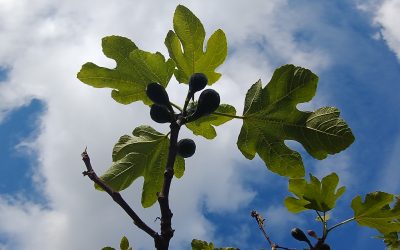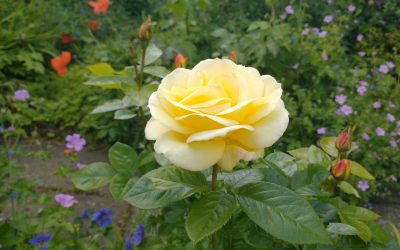Last night, on Burns’ Night, my book group met on Zoom to read Robert Burns’ poem ‘Tam O’Shanter’. Several members of the group had grown up taking part in annual Burns recitations on January 25, with prizes given for the best or most dramatic performances. They recalled the sound effects and props used by winning speakers to conjure up Tam fleeing from the scene of devilish revelry on his horse Meg, whose tail is plucked off by a pursuing spirit as the mare leaps with Tam to safety across the river (spirits won’t cross running water, it seems).
My eye fell on Robert Burns’ dates – 1759-96. Very similar to Mozart’s dates – 1756-91. Two short but brilliant lives! Did they know of one another? I don’t know, but I imagine they would have shared many attitudes to life and art.
Both were capable of being earthy and cheeky. Both had great sympathy for ‘the common man’ and a healthy disregard for rank and titles. Robert Burns’ famous poem, ‘A Man’s a Man for a’ that’, would surely have struck a chord with Mozart. And Mozart’s letters to his family, with puns and jokes about bodily functions, would have made Burns laugh.
Mozart was a good linguist, but even if he knew some English he probably never encountered the Scots vocabulary used by Burns. Burns shot to fame when his volume of ‘Poems, chiefly in the Scottish Dialect’ was published in 1786, when Mozart was flourishing in Vienna. But as far as I know, those poems were not translated into German until the early 19th century, so Mozart may never have read them.
Curiously, they had birthdays close together – Robert Burns on January 25, Wolfgang Amadeus Mozart on January 27. Two great artists born under the sign of Aquarius, whose qualities are said to include a love of independence and equality.




Malcolm Arnold wrote a fabulously dramatic Tam O’Shanter overture, in which there are several places with extraordinary clashing sound worlds. These caught me by surprise the first time I ever played in the piece but later stimulated all sorts of ideas for musical textures too -so Burn’s creative influence still going strong.
The Burns / Mozart coexistence in time makes for an interesting comparison. You are absolutely right about them sharing ‘earthy’ humour and a spirit of independence of thought. I’m always struck by who was alive (and what they were doing) around the time of the French Revolution. For instance, Kreutzer was writing his famous violin studies and founding the Paris Conservatoire around then. All that mayhem brewing, while he was quietly putting technique into orderly structure. And now you’ve got me wondering whether Kreutzer had an earthy sense of humour (that kept him going) too!
The French revolution! I hadn’t even thought of that. Thank you Mary!